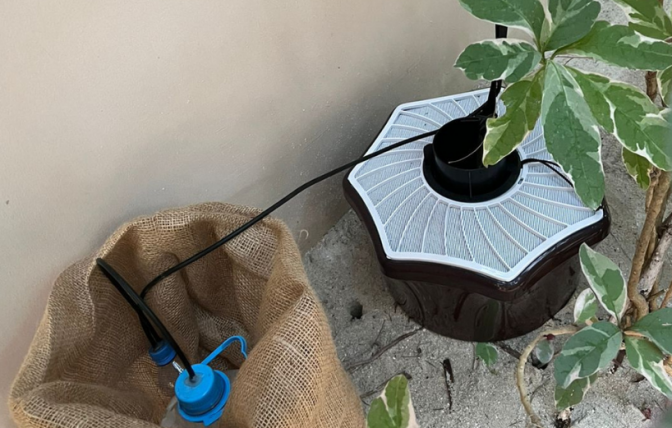

Summer Island Maldives has started implementing a new, eco-friendly strategy to eliminate mosquitoes from the island, without the need for fogging and using harmful pesticides.
The mosquitoes will be eliminated using a revolutionary ‘Integrated Mosquito Management System’ that targets mosquitoes at different stages during their life cycle. This involves setting traps for the mosquitoes, as well as getting rid of potential breeding sites, such as stagnant water.

After analyzing mosquito behavior on the island, Dr. Bart Knols, Managing Director of Science & Conservation at Soneva, and his team of experts, deployed 42 CO2 traps around the island. The traps attract mosquitoes by releasing CO2 into the air, imitating the scent of human breathing. Mosquitoes that fly nearby are sucked into the trap where they die.
Information sheets have been posted in the island, explaining how mosquitoes breed in still water – which can collect in even the most unsuspecting of objects, such as coconut shells – and calling on staff and guests to be vigilant about properly disposing of things that could collect water.

Speaking about the mosquito eradication process, Dr Knols said, “Summer Island has many advantages such as its small size, which makes it a little bit easier to attempt elimination. I feel confident that we can completely eradicate mosquitoes from many parts of the Maldives by using this integrated model based on traps, instead of fogging. Pesticides merely cause mosquitoes to become resistant, destroy all other insect biodiversity on pristine Maldivian islands, and are highly toxic to marine life and corals. Guests also dislike the smell and sound of fogging. For all these reasons we should move away from fogging”
Summer Island’s Resort Manager Mari Shareef added: “This project is not just about creating a mosquito-free environment for our guests. We want to show that these kinds of things can be done in a way where we don’t have to resort to harmful pesticides and chemicals.”
The new process is expected to see dragonflies, honey bees and other pollinators – that were previously eliminated along with mosquitos during fogging – rebound on the island, thereby restoring the balance in the ecosystem.